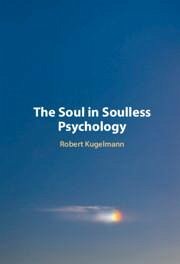"Modern psychology began with a rejection of the "soul" as relevant for the science. How did that come about? The Soul in Soulless Psychology explores that question and details arguments for a soulless psychology. However, there was also opposition to this notion. This alternative history of psychology examines those who dissented from a "psychology without a soul," including Neoscholastic psychologists and others, such as Ladd, Mèunsterberg, and McDougall. Substitutions for the soul - such as self, personality, and the brain - show that even with the soul absent, its concerns were present. Innovative re-thinkings of the soul are addressed, as well as attempts at restoration of the soul into psychology. Moreover, historical psychologies of the soul kept the soul in view. In the twenty-first century, we find soul as a noun, an adjective, and a verb, all pointing to the necessity of the soul for psychology"--
Hinweis: Dieser Artikel kann nur an eine deutsche Lieferadresse ausgeliefert werden.
Hinweis: Dieser Artikel kann nur an eine deutsche Lieferadresse ausgeliefert werden.








